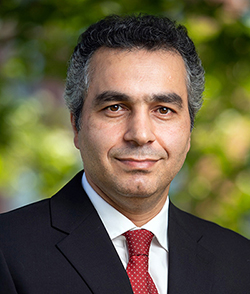COMPUTER SECURITY
This course introduces the computer Security. Emphasis is placed on the protection, access control, distributed access control, Unix security, applied cryptography, network security, firewalls, secure coding practices, safe languages, mobile code, and case studies from real-world systems. May also cover cryptographic protocols, privacy and anonymity, and/or other topics as time permits.
OBJECTIVE
After completing this course successfully, the student can: Describe the important concepts in computer security such as Availability, Confidentiality, Integrity, Privacy, methods and mechanisms such as Security Policies, Security Protocols, Identification, Authorization, Physical Tamper Resistance Place security techniques in an overall security context; for example, design a system or analyse a situation and determine what the different security techniques could achieve in a given scenario, what techniques to apply to reach a given goal, etc. Find, survey, and use/explain basic security literature and be able to present this in the form of a scientific paper in English.
ORGANISATION
Language: The class is taught in English.
Assistant: Select one student to manage, handle and collect the assignments, projects, and Lab activities.
Final Examination: Written examination, (60%)
Courseworks: First Coursework is Compulsory + Select one from number 2 or 3, (40%)
Coursework 1: This is about Cryptography (Asymmetric crypto technology). You are required to investigate one technique and method that select from 9 current and famous methods. (A team of three members - Present at Mini Conference), (20%)
Coursework 2: This is concerned with programming and you must develop the method which selected in coursework 1 (A team of three members - Present at Mini Conference), (20%)
Coursework 3: Is based on a mini conference on computer security. Each group must select a topic after two first sessions and write a paper maximum 6 pages on that topic and present in the mini conference. Date of mini conference is 14:00 Pm, 25th April, 2012. Join to the mini conference is free for all students from other departments and faculty (A team of three members - Present at Mini Conference).
Call for papers.pdf and Examiner review form.pdf (20%)
Assistant: Select one student to manage, handle and collect the assignments, projects, and Lab activities.
Final Examination: Written examination, (60%)
Courseworks: First Coursework is Compulsory + Select one from number 2 or 3, (40%)
Coursework 1: This is about Cryptography (Asymmetric crypto technology). You are required to investigate one technique and method that select from 9 current and famous methods. (A team of three members - Present at Mini Conference), (20%)
Coursework 2: This is concerned with programming and you must develop the method which selected in coursework 1 (A team of three members - Present at Mini Conference), (20%)
Coursework 3: Is based on a mini conference on computer security. Each group must select a topic after two first sessions and write a paper maximum 6 pages on that topic and present in the mini conference. Date of mini conference is 14:00 Pm, 25th April, 2012. Join to the mini conference is free for all students from other departments and faculty (A team of three members - Present at Mini Conference).
Call for papers.pdf and Examiner review form.pdf (20%)


